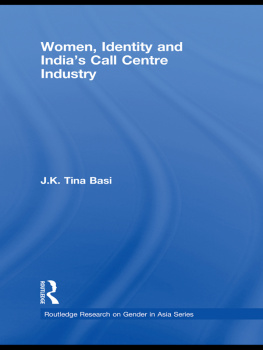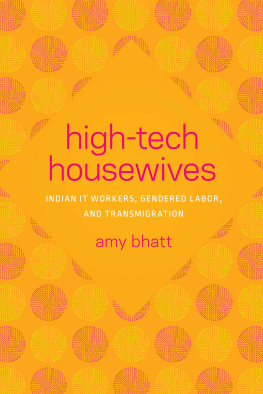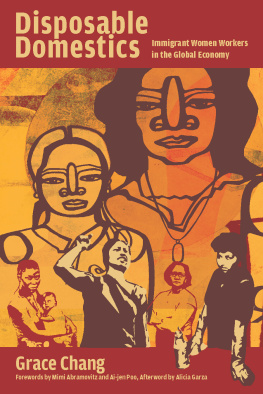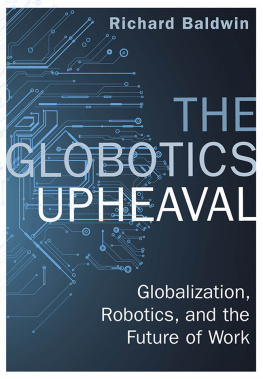PHONE CLONES
Authenticity Work in the Transnational Service Economy
KIRAN MIRCHANDANI
ILR PRESS
AN IMPRINT OF
CORNELL UNIVERSITY PRESS
ITHACA AND LONDON
To the inspirational lives of my grandparents
Satrupi (Mira) Kripalani
19132009
and
Jethanand Karamchand Makhijani
19072003
C ONTENTS
Acknowledgments
Abbreviations
Introduction: The Authentic Clone
1. Transnational Customer Service: A New Touchstone of Globalization
2. Language Training: The Making of the Deficient Worker
3. Hate Nationalism and the Outsourcing Backlash
4. Surveillance Schooling for Professional Clones
5. Dont Take Calls, Make Contact!: Legitimizing Racist Abuse
6. Being Nowhere in the World: Synchronous Work and Gendered Time
Conclusion: Authenticity Work in the Transnational Service Economy
Notes
A CKNOWLEDGMENTS
What started out as a small study funded by the Shastri-Indo Canadian Institute in 2001 developed into a decade-long exploration with many participants who form the bedrock of this book. I am fortunate to be located at the University of Toronto, where I received the generous support of the Social Sciences and Humanities Research Council of Canada and the opportunity to interact daily with an engaged community of feminist scholars and friends. Almost every summer, I traveled to India to meet customer service workers who generously shared their time, stories, and perspectives. I came away from each interview with a sense of awe and admiration for the women and men who work in this industry. Over the years, I shared many of their stories with my colleagues and friends. The ideas in this book developed out of conversations in meetings and classes, through email, on the telephone, over meals, and in the midst of small children. I am fortunate to have been part of such a rich transnational network, which includes Anke Allspach, Arti Dhand, Enakshi Dua, Yasmin Gopal, Nancy Jackson, Shahrzad Mojab, Sanjukta Mukherjee, Shehzad Nadeem, Roxana Ng, Shoshana Pollock, Pushkala Prasad, Anshuman Prasad, Jack Quarter, Ashwini Tambe, Shruti Tambe, Peta Tancred, Virginia Thomas, Alissa Trotz, Shankar Vedantam, and Leah Vosko. Several graduate students helped with literature reviews and interviews. I benefited from the contributions of Srabani Maitra and Jasjit Sangha during the initial stages of this work, and Pooja Aggarwal and Hewton Ricarter Moreira Tavares in latter years. Frances Benson, Candace Akins, Susan C. Barnett and their team at ILR/Cornell University Press have been a pleasure to work with at every stage. My friends in Singapore, Noraini Bakri, Sharon Couteau, Sonali Desai, Anjna Kirpalani, Gaurav Kripalani, Gina Leong, and Lo Yen Nee, nurtured my early interest in social phenomena. My brother and his familySandeep, Jingjing, Kai, and Riaarranged revitalizing escapes. My wonderful familyAshwin, Suvan, Syona, and Chipkohave given me endless joy. I thank them for being such adventurous and supportive travelers. My growing children are an enduring reminder of how long it takes to write a book and how quickly time goes by. I owe both the initiation and the successful completion of this book to my parents, Ajit and Sheeley Mirchandani, without whom none of this would have been possible. They not only provided a place from which I could do my research but also enthusiastically rearranged their entire lives for months each year to fulfill the numerous and multifaceted demands of my young family. Our time together has been the most pleasurable by-product of this project.
A BBREVIATIONS
| Agent | frontline customer service worker taking calls |
| AHT | average handling time |
| BPO | business process outsourcing |
| C-Sat | a performance score given by customers |
| D-Sat | a performance score given by a dissatisfied customer |
| IT | information technology |
| ITES | information technology enabled services |
| MTI | mother tongue influence |
| NASSCOM | National Association of Software and Services Companies |
| OJT | on-the-job training |
| Process | the type of work agents are engaged in (for example, processing insurance claims, solving computer problems, placing catalogue sales orders, addressing concerns with Internet connections, processing airline reservations, and so forth) |
| INR | rupees, the currency in India |
I NTRODUCTION
The Authentic Clone
What happens when you need to be yourself and like someone else at the same time? This is the central demand placed on transnational service workers, who form a large and growing part of the global economy. In response, workers perform an elaborate set of largely invisible activities, which I term authenticity work . Based on interviews with one hundred transnational call center workers in India this book describes their authenticity work as they refashion themselves into ideal Indian workers who can expertly provide synchronous, voice-to-voice customer service for clients in the West. The experiences of Indian call center workers sheds light on a wide range of service-related activities that cross national borders. Filipino nannies refashion themselves to clone faraway employers visions of ideal caregivers. Health workers in Mexico servicing American medical tourists strive to package the quality of their services in terms of Western professional practice. The exchange of labor and capital occurs in the context of national histories and power inequities that make the negotiation of authenticity a central part of transnational service work.
While the globalization of service work has steadily increased in recent years, there has been a dramatic shift in the nature of customer service in particular. No longer involving face-to-face interactions between customers and workers, telecommunications technologies facilitate the widespread provision of customer service that is temporally synchronous and spatially distant. Workers housed in cubicled call centers make voice-to-voice contact with customers, some of whom might live within walking distance while others are on the other side of the world. The global patterns in the offshoring of customer service work are structured not only by market forces but also by national histories. Significantly, workers living in countries that have been colonized are top contenders for offshored customer service jobs. Out of these countries, India has received the prized distinction of being the most desirable location for offshore service work.
While the transnationalization of customer service work is relatively new, the mobility of capital without the mobility of labor has been the hallmark of global capitalist regimes. Manufacturing and assembly jobs have historically been conducted in poor countries benefiting multinational Western corporations without requiring the large-scale migration of labor to the West. Workers without immigration or mobility rights have supported industrial development in the West for over a century. However, rarely in the past have these workers been in voice-to-voice conversation with their faraway customers, and rarely has part of the product being exchanged been a responsive, caring, connected self itself. I argue that two sets of processes structure these new global service workers jobs. First, a set of relations through which they are distanced from the West and seen as physically remote speakers of a strange version of English who pose a danger to Western economic and national sovereignty. Second, workers are just like their customers in the West with the familiarity and ability to connect with clients that are necessary for successful customer service. In reconciling these two processes, workers enter into a complex interplay of colonial histories, class relations, and national interests, which are embedded within their authenticity work. This is the work of being oneself and simultaneously like someone faraway imagines one should be. Becoming a phone clone involves emulating, through voice, an ideal transnational call center worker who is both close to and distant from customers in the West.









